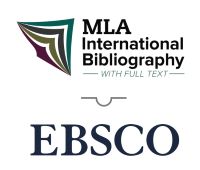Uma análise de necessidades de recepcionistas de hotel para a construção de um programa de ensino de língua estrangeira baseado em tarefas
DOI:
https://doi.org/10.26512/rhla.v16i2.19949Palavras-chave:
Análise de necessidades, Tarefa, Desenho de currículoResumo
O artigo descreve uma análise de necessidades conduzida com recepcionistas de hotéis como ponto de partida para a elaboração de um programa de ensino de língua baseado em tarefas. Seguindo os procedimentos definidos por Long (1985, 2005), o estudo identifica as necessidades desse profissional para a definição das tarefas-alvo e sua classificação em tarefas-tipo. Os dados foram coletados por meio de entrevistas, questionários e a observação não participativa dos recepcionistas em sua rotina de trabalho. Os dados mostraram que as noções de tarefa-alvo e -tipo podem ser associadas à noção de gênero discursivo, assim como a concepção de subtarefa como estágio constitutivo de um gênero. Esses resultados podem redirecionar o desenho de um programa de ensino de língua estrangeira por tarefas para cursos profissionalizantes direcionados a recepcionistas ou a qualquer outro profissional da área de turismo.
Downloads
Referências
AMORIM, Telma P. P. Uma análise de necessidades comunicativas de profissionais do eixo tecnológico Hospitalidade e Lazer: subsídios para um programa de ensino de inglês baseado em tarefas. 2011. Dissertação (Mestrado em Linguística) ”“ Universidade Federal de Santa Catarina, Programa de Pós-Graduação em Linguística. Florianópolis, 2011.
BORGATTI, Steve. Introduction to grounded theory. Disponível em: <http://www.analytictech.com/mb870/introtoGT.htm>. Acesso em: 6 fev. 2017.
BRINDLEY, Geoffrey. The role of needs analysis in adult ESL programme design. In: JOHNSON, Robert K. (Ed.) The second language curriculum. Cambridge: CUP, 1989. p. 63-78.
CARDOSO, Zélia C. Análise de necessidades no setor de recepção de um hotel: primeiro passo para uma sugestão de curso. 2003. Dissertação (Mestrado em Linguística Aplicada e Estudos da Linguagem) ”“ Pontifícia Universidade Católica de São Paulo. Programa de Pós-Graduação de Linguística Aplicada e Estudos da Linguagem. São Paulo, 2003a.
CARDOSO, Zélia C. Check-in: um gênero familiar para recepcionista de hotel. The ESPecialist, São Paulo, v. 24, n. 2, p. 143-153, 2003b.
EGGINS, Suzanne. An introduction to systemic functional linguistics. 2nd ed. Nova York: Continuum International Publishing Group, 2004.
FABIÃO, Etelvina de F. An ESP approach to the linguistic needs of the hotel receptionists in Portugal. 2005. Dissertação (Mestrado em Estudos Ingleses) ”“ Universidade de Aveiro, Departamento de Línguas e Culturas. Aveiro, Portugal, 2005.
GLASER, Barney G.; STRAUSS Anselm L. The discovery of grounded theory. Chicago: Sociology Press, 1967.
HASAN, Ruqayia. The structure of a text. In: HALLIDAY, Michael; HASAN, Ruqayia. Language, context and text: aspects of language in a socio-semiotic perspective. Oxford: OUP, 1989. p. 34-42.
JASSO-AGUILAR, Rebeca. Sources, methods and triangulation in needs analysis: a critical perspective in a case study of Waikiki hotel maids. In: LONG, Michael H. (Ed.) Second language needs analysis. Cambridge: CUP, 2005. p. 127-152.
LONG, Michael H. A role for instruction in second language acquisition: task-based language teaching. In: HYLTENSTAM, K.; PIENEMANN, M. (Ed.) Modelling and assessing second language acquisition. Clevedon: Multilingual Matters Ltd., 1985. p. 77-99.
LONG, Michael H. Second language needs analysis. Cambridge: CUP, 2005.
LONG, Michael H.; CROOKES, Graham. Three approaches to task-based syllabus design. TESOL Quaterly, v. 26, n. 1, p. 27-56, 1992.
MARCUSCHI, Luiz A. Gêneros textuais: definição e funcionalidade. In: DIONISIO, Angela P.; MACHADO, Anna R.; BEZERRA, Maria A. (Org.) Gêneros textuais e ensino. Rio de Janeiro: Lucerna, 2002.
MARTIN, James R. Language, register and genre. In: CHRISTIE, Frances (Ed.) Language studies: children writing leader. Geelong: Deakin University, 1984. p. 21-30.
NUNAN, David. Syllabus design. Oxford: University Press, 1988.
PALTRIDGE, Brian. Genre and the language learning classroom. Michigan: The University of Michigan Press, 2001.
RITTER, Rejane K. R. As necessidades dos profissionais de hotelaria em relação à língua inglesa. 1997. Dissertação (Mestrado em Língua Inglesa) ”“ Universidade Federal do Paraná, Programa de Pós-Graduação em Letras, Curitiba, 1997.
STARFILED, Sue. Ethnographies. In: PALTRIDGE, Brian; PHAKITI, Aek (Orgs.). Continuum companion to research methods in Applied Linguistics. London: Continuum International Publishing Group, 2010. p. 50-65.
WATSON-GEGEO, Kann. Ethnography in ESL: defining the essentials. TESOL Quarterly, v. 22, n. 4, p. 575-592, 1988.
WEST, Richard. Needs analysis in language teaching. Language Teaching, v. 27, n. 1, p. 1-19, 1994.
WEST, Richard. Needs analysis: State of the art. In: HOWARD, Ron; BROWN, Gillian (Eds.). Teacher education for languages for specific purposes. Clevedon: Multilingual Matters, 1997. p. 68-79.
XAVIER, Rosely P. A aprendizagem em um programa temático de língua estrangeira (inglês) baseado em tarefas em contextos de 5a série do ensino fundamental. 1999. Tese (Doutorado em Linguística Aplicada) ”“ Instituto de Estudos da Linguagem, Universidade Estadual de Campinas, 1999.
XAVIER, Rosely P. Planejamento de ensino baseado em tarefas. In: BARBIRATO, Rita de C.; SILVA, Vera T. (Org.) Planejamento de cursos de línguas: traçando rotas, explorando caminhos. Campinas: Pontes Editores, 2016. p.15-43.
Downloads
Publicado
Como Citar
Edição
Seção
Licença

A Revista Horizontes de Linguística Aplicada de http://seer.bce.unb.br/index.php/horizontesla/index é licenciado sob uma Licença Creative Commons Atribuição-Uso não-comercial-Vedada a criação de obras derivadas 3.0 Unported.
- Autores mantém os direitos autorais e concedem à revista o direito de primeira publicação, sendo o trabalho simultaneamente licenciado sob a Creative Commons Attribution License o que permite o compartilhamento do trabalho com reconhecimento da autoria do trabalho e publicação inicial nesta revista.
- Autores têm autorização para assumir contratos adicionais separadamente, para distribuição não-exclusiva da versão do trabalho publicada nesta revista (ex.: publicar em repositório institucional ou como capítulo de livro), com reconhecimento de autoria e publicação inicial nesta revista.







